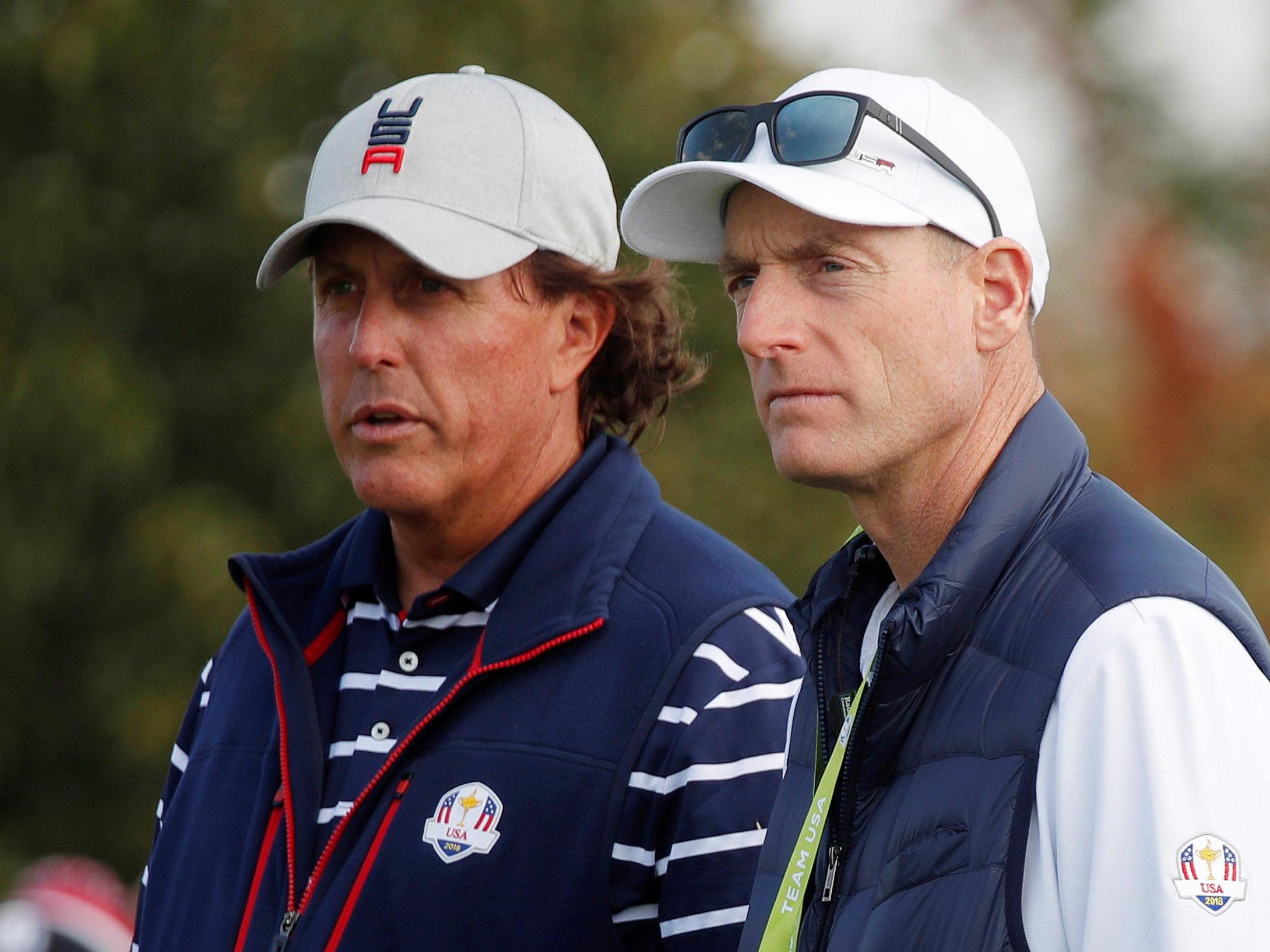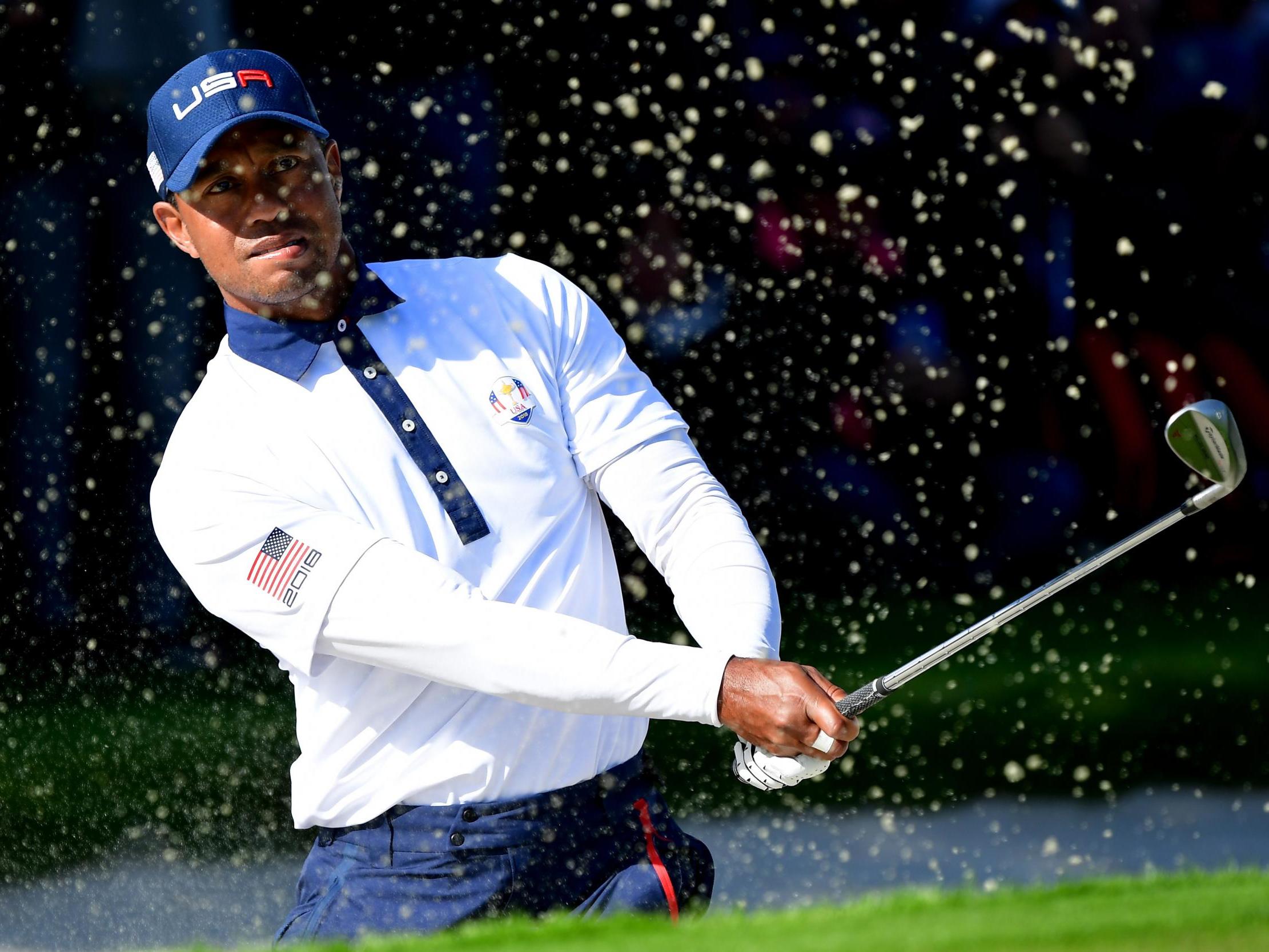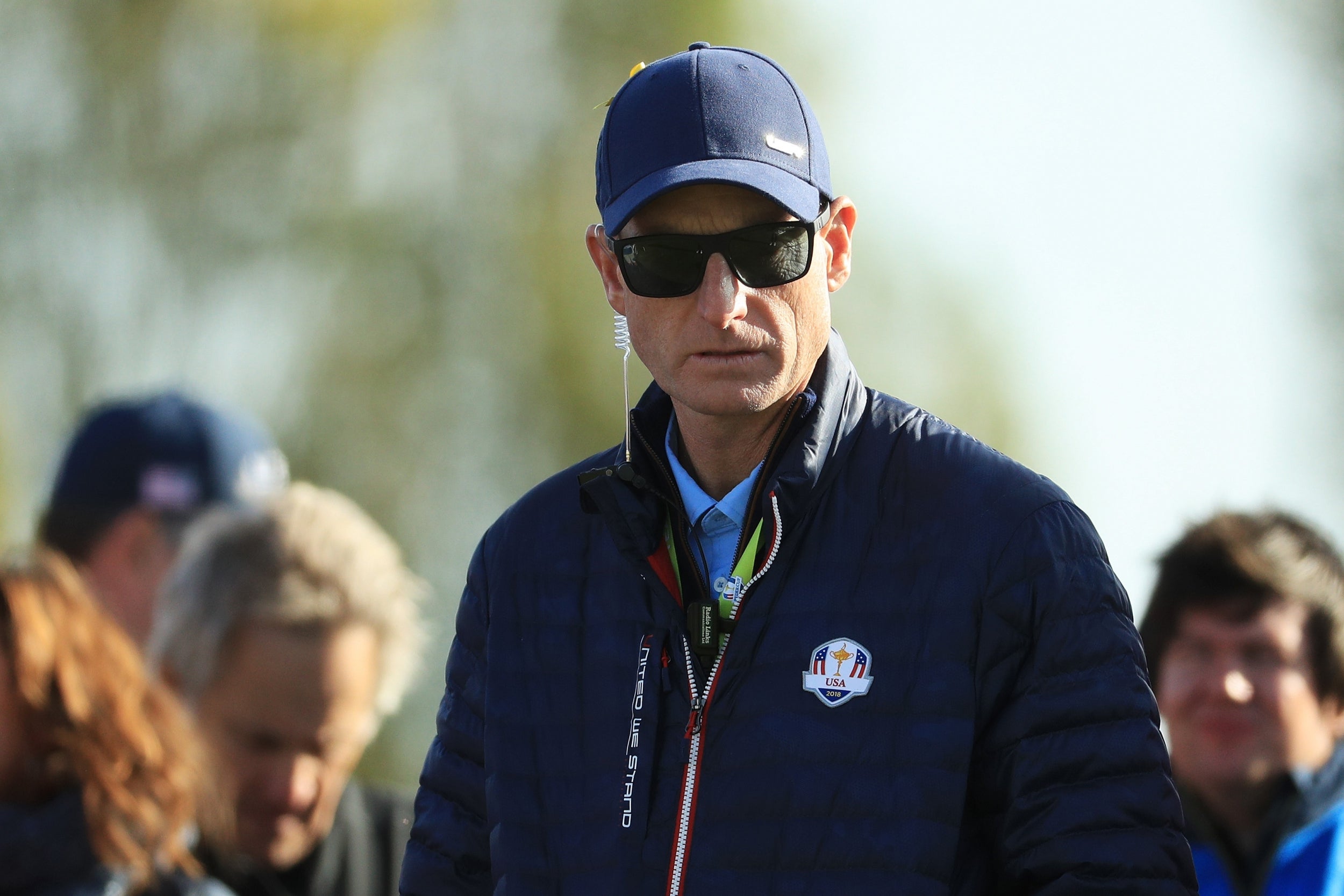Tiger Woods and Phil Mickelson's failure ensures their flawed legacy is secure
Golf’s two most storied names produced a total of no wins and six defeats at Le Golf National. Jonathan Liew examines where - and why - it all went wrong


Your support helps us to tell the story
From reproductive rights to climate change to Big Tech, The Independent is on the ground when the story is developing. Whether it's investigating the financials of Elon Musk's pro-Trump PAC or producing our latest documentary, 'The A Word', which shines a light on the American women fighting for reproductive rights, we know how important it is to parse out the facts from the messaging.
At such a critical moment in US history, we need reporters on the ground. Your donation allows us to keep sending journalists to speak to both sides of the story.
The Independent is trusted by Americans across the entire political spectrum. And unlike many other quality news outlets, we choose not to lock Americans out of our reporting and analysis with paywalls. We believe quality journalism should be available to everyone, paid for by those who can afford it.
Your support makes all the difference.This time, there would be no ritual bloodletting, no remonstrations. Jim Furyk would not be publicly and unceremoniously thrown under the bus like Tom Watson at Gleneagles four years ago. The buzzword of Team USA’s press conference after their Ryder Cup defeat in Paris was “proud”. They were proud of themselves, proud of their captain, proud of each other. “It’s just golf,” Furyk said. “Golf isn’t traumatic. You can call me crazy. But I would take these guys right back into another Ryder Cup, and play it all over again if I could.”
It was only the following morning, when comments attributed to Patrick Reed appeared in the New York Times, that the now-traditional American Ryder Cup post-mortem began to take a more familiar hue. Reed was seething at the break-up of his successful partnership with Jordan Spieth, at being benched twice in four sessions, at the egos in the US team that had so spectacularly prevented them from fulfilling their potential.
Furyk, for his part, spoke with the dignity of a man who knows it’s his last day in the job. His two years are now done, and if he was mourning his losing legacy, or agonising over decisions not taken, he wasn’t showing it. You could - and Reed certainly did - question some of his calls. You could even question the decision to appoint him in the first place; his Ryder Cup playing record of 10 wins and 20 defeats hardly suggested a mastery of the competition. But none of the criticism that will doubtless rain down on Furyk in the coming days and weeks will entirely explain this defeat. Furyk was, in many ways, a product of the system, and it was a system embodied by two men sitting either side of him.
In November, Tiger Woods and Phil Mickelson will play a one-on-one, winner-takes-all, $9 million showdown in Las Vegas. This was not a good weekend for business. Golf’s two most storied names produced a total of no wins and six defeats for the competition. Mickelson now has more losses than any other player in Ryder Cup history, with 22 in total. Woods is one behind him, in second place. “I’m one of the contributing factors to why we lost the Cup,” Woods admitted. “And it’s not a lot of fun.”
And as they plodded unhappily around Le Golf National, the afternoon and the Cup slipping away, it was hard not to feel that in some sense we were witnessing the end of an era in America’s Ryder Cup history. Woods will be 44 at Whistling Straits in 2020. Mickelson will be 50, an age beyond which only Ray Floyd (1993) and Jay Haas (2004) have competed. It’s not impossible that one or both could make it. But whether or not they do, their legacy in this competition is largely already secure.
Their failure may be shared - 19 major championships combined, and yet a foursomes and fourball record of 22 wins and 35 defeats between them - but the reasons behind it are subtly different. Woods has both the greater case to answer and the greater mitigation. By Whistling Straits, it will have been 21 years since he played for a winning US team. But equally, he may be a victim of his own phenomenal talent. Research by Brandel Chamblee of the Golf Channel shows that players paired with Woods on the Saturday or Sunday of tour events play almost three shots worse in his company. The Woods effect is real, and it seems to take its toll most grievously on his playing partners.
At one point during the US press conference, as Furyk was nattering away, Woods allowed his eyes to gently close for a few seconds. He looked shattered. He has looked shattered for most of the weekend. He has played seven weeks out of nine, starting with the Open Championship, followed by the WGC, followed by the US PGA, followed by the FedEx Cup play-off series. And then a Ryder Cup. Small wonder it had taken its toll.
Woods was not the only player to endure this schedule, of course. But having spent so long out of the game with injury, coupled with the emotional toil of winning his first tournament in five years at East Lake, and the simple strain of being the game’s most recognisable star, it was always going to be a big ask. “A lot of big events, and a lot of focus, a lot of energy goes into it,” he said. “I’ll have a better understanding of what my training needs to be for next year.”

Mickelson, on the other hand, had the reverse problem. He’s the sort of guy you can pair with anybody. A reassuring and invigorating presence in the team room. The ultimate tonic. Except there was one problem: he couldn’t drive for oatmeal. On Saturday morning, as his team-mates were out in the fourballs, Mickelson was alone on the range, trying to drill himself into some form. “I spent more time hitting balls throughout the week than I have all year,” he admitted. “Trying to find something that would click. And it’s just been a struggle. The last month has been a struggle.”
And so this defeat hit Mickelson particularly hard: not just because he felt he had let himself down, but because he had let down Furyk, a close friend and confidant. “This is a very meaningful team for me personally,” he said. “There have been two years - this year and 2006 with Tom Lehman - where it breaks my heart a little bit more than others. Because those two, we were given every opportunity to succeed.”
At Gleneagles in 2014, Mickelson had launched an astonishing attack on captain Tom Watson, whose folksy, schoolmasterly style had rubbed many of the players up the wrong way. Mickelson was an integral part of the task force set up in the wake of that defeat, and which enjoyed such success at Hazeltine two years ago. And so his responsibility for America’s failure in France goes deeper than his performance as a player. In part, it was a defeat of which he was the architect.

The putative role of the task force was to return power to the players. In truth, it was a sort of palace coup, concentrating power in a small handful of players: Woods, Mickelson, Davis Love III and their immediate circle, including the likes of Furyk, Steve Stricker and Lehman. The fact that most of these names were closely associated with the 2002-2014 era, the most ignominious in America’s Ryder Cup history, wasn’t even the main issue. Rather, the involvement of a few key players in selecting their captain created a monumental conflict of interest that only unravelled over three dispiriting days in France.
Furyk’s decision to give Mickelson a wildcard epitomised this. On one hand, Mickelson’s form was indifferent, the course was poorly suited to him, and on a setup that prioritised straight hitting, a man who was No 192 in the PGA Tour’s driving accuracy statistics this year didn’t really leap out as an obvious pick. Equally, though, even when he’s not playing well, it’s still Mickelson. “He provides a lot more than just play,” Furyk said. “He’s funny, he’s sarcastic, witty, likes to poke fun at people, and he’s a great guy to have in the team room.”
If Furyk wanted a wisecracker in the team, he might as well have given one of his 12 slots to Chris Rock. But of course, Mickelson had played a pivotal role in appointing Furyk to the job in the first place. The pair were close friends and team-mates on nine Ryder Cups. Whatever the competing merits of Xander Schauffele, Patrick Cantlay, Kevin Kisner or Keegan Bradley, Furyk was never going to leave Mickelson at home. And whether you agree with the call or not, you can’t possibly argue that Furyk was a neutral arbitrator here.

This is what Reed meant when he referred to decisions being made by a “buddy system” within the US team - a small group of senior players including Woods and Mickelson, in league with the team management. Part of the role of the task force - since rebranded as the “Ryder Cup Committee” - is to ensure a smooth succession from captain to captain. Stricker is a strong favourite to take over in 2020, with Mickelson and Woods both being anointed as future captains at some point. Under the new regime, the US Ryder Cup captaincy is in danger of becoming a sort of crown, to be handed down to whoever is next in line, rather than the best man or woman for the job.
Home advantage can salve plenty of ills. US will be clear favourites at Whistling Straits in 2020, which they will doubtless set up to their strengths. Woods may well be there if he continues his remarkable restoration to the upper echelons of the game. Mickelson can never be counted out. Even if neither make the team by right, both will doubtless be present in some capacity. And so for all the failures they embodied on the course, in many ways Woods and Mickelson have already succeeded. They’ve managed to remake America’s Ryder Cup team in their own image: the present embodiment of a past legacy that - and we’re being exceptionally generous here - has produced largely mixed results.
Join our commenting forum
Join thought-provoking conversations, follow other Independent readers and see their replies
Comments